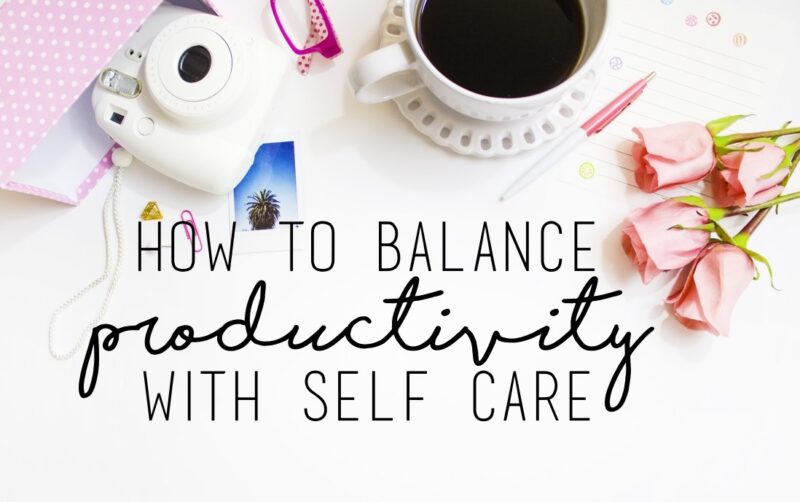Balancing the demands of life and your personal well-being can feel like you’re juggling flaming torches. The stress of keeping everything in check can lead to burnout if you’re not careful. Let’s explore how to stay productive without sacrificing yourself in the process.
Key Points
- Identify your key priorities and let go of perfectionism.
- Make breaks a mandatory part of your routine.
- Learn to say no and protect your time.
- Delegate tasks to reduce mental load.
- Recognize burnout signs early and adjust.
1. Start With Priorities, Not Perfection
Perfection is overrated. It’s the enemy of progress and often keeps you stuck in a cycle of endless tweaking. Instead, focus on what genuinely matters and let the rest go.
Practical Example
You’ve got five tasks on your list. Only one is due today, but you’re stressing about all five. Skip the ones for next week, and tackle what’s urgent. Trust me—your future self will thank you.
Taking time to read about the latest news can even feel like a win after a hectic day.
Pro Tip
Create a “must-do” list with only two or three tasks each day. Leave room for surprises because life rarely sticks to the plan.

2. Schedule Breaks Like They’re Meetings
Breaks aren’t optional luxuries—they’re essential. A pause in your day can restore your focus and energy, preventing that afternoon slump. Even short breaks can make a difference.
Benefits of regular breaks:
- Boosts focus ─ Helps reset your attention span.
- Reduces stress ─ Gives your mind time to relax.
- Increases creativity ─ Allows ideas to flow naturally.
Recommendations:
- Take a 5-minute walk after every hour of work.
- Schedule a proper lunch break without screens.
- Use guided breathing apps for quick mindfulness sessions.
3. Learn the Art of Saying No
Saying no is a skill that saves your energy and sanity. It might feel awkward at first, but it gets easier with practice. Saying yes to every request only piles on stress and limits your ability to focus on what matters.
Practical ways to say no:
- Be polite but firm ─ “I appreciate the opportunity, but I can’t take that on right now.”
- Offer alternatives ─ “I can’t help, but I know someone who might be able to.”
- Use a delayed response ─ “Let me check my schedule and get back to you.”

4. Use the Two-Minute Rule
Quick wins can lighten your mental load and keep procrastination at bay. Tasks that take two minutes or less—like responding to an email or clearing your workspace—should be tackled immediately.
Key Benefits
- Clears mental clutter, making you feel more in control.
- Prevents small tasks from piling up into overwhelming lists.
- Keeps momentum going by building a sense of accomplishment.
Pro Tip
Group similar short tasks together and knock them out in one go. For example, dedicate 15 minutes to emails instead of answering them sporadically all day.
5. Delegate Without Guilt
Stop trying to do it all. Sharing responsibilities doesn’t make you less capable—it shows you’re strategic. Delegation allows you to free up time for high-priority tasks or simply to rest.
Recommendations for effective delegation:
- Choose people you trust to handle tasks well.
- Be clear about expectations and deadlines.
- Follow up briefly, but avoid micromanaging.

6. Celebrate Small Wins
Every little accomplishment counts, even if it feels minor. Recognizing these moments boosts morale and helps you stay motivated for the bigger tasks.
Examples of small wins to celebrate:
- Closing all your browser tabs at the end of the day.
- Completing a workout, even if it was just 10 minutes.
- Preparing a healthy meal instead of ordering takeout.
How to celebrate:
- Treat yourself to a nice coffee or snack.
- Share your win with a friend or loved one.
- Write it down in a journal to reflect on later.
7. Recognize Burnout Before It Hits
Burnout doesn’t happen overnight. It builds slowly and quietly until you’re completely drained. Spotting the early warning signs can help you avoid the worst of it.
Warning signs:
- Feeling constantly tired, even after rest.
- Losing interest in work or hobbies.
- Becoming irritable or emotionally numb.
Practical steps to prevent burnout:
- Adjust your workload or ask for help when overwhelmed.
- Take one day off every week to completely unplug.
- Commit to hobbies or activities that replenish your energy.

8. Redefine What Productivity Looks Like
Productivity isn’t about doing more; it’s about doing what matters. Stop measuring your worth by how much you accomplish and focus on meaningful outcomes instead.
Pro Tip
Ask yourself, “Does this task bring me closer to my goal?” If not, consider skipping it or delegating it.
9. Use Technology Without Letting It Control You
Tech can be a double-edged sword. It helps you stay organized but can also suck you into a vortex of distractions. Use it wisely.
Tips for managing tech:
- Turn off unnecessary notifications.
- Use apps like Pomodoro timers to stay focused.
- Set clear limits for social media and screen time.
10. Recharge Outside of Work
Recharging doesn’t mean zoning out in front of the TV every night. Activities that nourish your body and mind are the real game-changers.
Ideas for recharging:
- Go for a hike or a walk in nature.
- Take up a creative hobby like painting or baking.
- Spend quality time with loved ones.

11. Stop Comparing Yourself to Others
Comparison is the thief of joy. Social media can make everyone else’s life seem perfect, but it’s just a highlight reel. Stay focused on your own progress and let go of the need to measure up.
Recommendations:
- Limit time spent on platforms that trigger comparisons.
- Practice gratitude by listing three things you’re proud of each day.
- Remind yourself that you’re seeing curated moments, not the full story.
12. Trust Yourself to Handle Less
Letting go of tasks doesn’t mean you’re failing. It means you’re prioritizing what’s important and giving yourself the space to succeed without burning out.
Practical examples of letting go:
- Skip organizing every detail for a meeting—focus on the essentials.
- Say no to a low-priority project to focus on a high-impact one.
- Allow yourself to take a nap without feeling guilty.
Conclusion
Balancing personal needs with daily demands takes effort, but it’s worth it. Focus on what truly matters, let go of unnecessary stress, and make room for breaks and self-care. Small changes can lead to big improvements in your well-being and productivity. Prioritize yourself, not just your to-do list—you deserve it!

